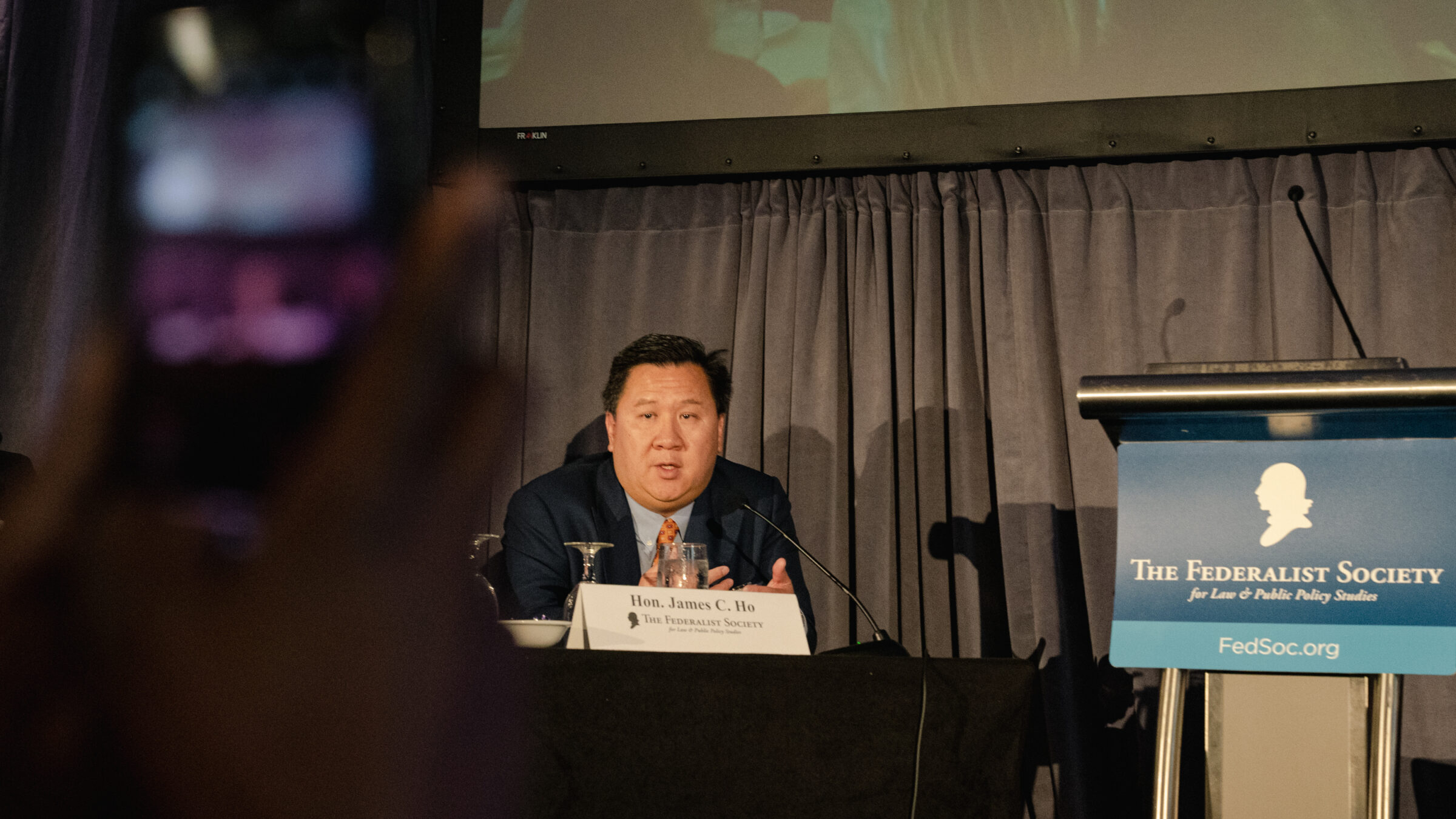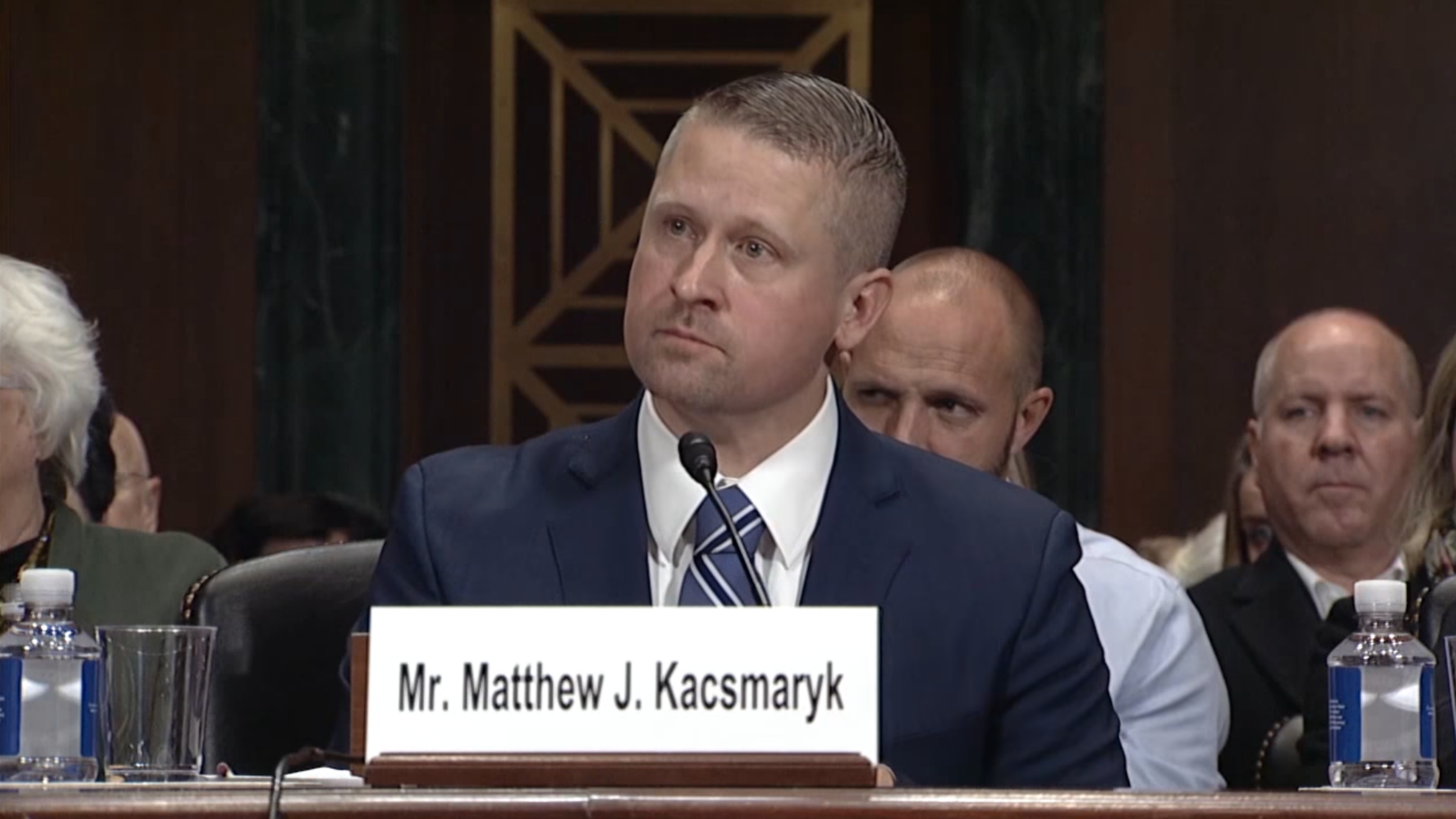Over the past several years, the practice of judge-shopping has become national news thanks largely to the exploits of Texas district court judge Matt Kacsmaryk, a homophobic blogger whom President Donald Trump appointed to the federal bench in 2019. Thanks to a quirk in that court’s case assignment system, people who file civil lawsuits in its Amarillo division have a near-100-percent chance of drawing Kacsmaryk as their judge. In practice, this means that every reactionary dunce with a jurisprudential axe to grind—from zealots seeking to ban medication abortion to megabanks profiting off of redlining to aggrieved dads trying to prevent their teens from using birth control—flocks to his courtroom, confident that an ideological ally like Kacsmaryk will deliver the answers they want.
Last month, the Judicial Conference, the federal judiciary’s policymaking body, finally unveiled new rules designed to discourage this practice. Among other things, these rules directed courts to assign judges using a “district-wide random selection process” whenever a plaintiff brings a case that seeks a nationwide injunction. But almost immediately, under pressure from Republican politicians, the Judicial Conference backed off, clarifying that the policy did not limit a court’s sacred “authority or discretion” to handle its caseload as it pleases. Kacsmaryk’s court, the Northern District of Texas, promptly declined to adopt the rules, leaving him as free as ever to veto Biden administration policies that he doesn’t personally like.
Somehow, this resolution was not satisfying enough for James Ho, a Trump appointee to the Fifth Circuit Court of Appeals and perennial answer to the question, “Which sitting federal judge is auditioning the hardest for a future Republican Supreme Court seat?” In a recent speech before a county bar association in Texas, Ho framed criticism of Kacsmaryk and the rules dust-up as not about “forum shopping,” but instead as politically-motivated exercises in “forum shaming.” (Do you see what he did there?) “The last thing we should do is gerrymander the rules in response to political pressure,” Ho said, marking the first time in history that a Republican judge has found gerrymandering objectionable.

(Getty Images)
Perhaps the weirdest part about Ho’s remarks is that at several points, he accidentally (?) makes a pretty compelling case that what Kacsmaryk is doing is, broadly speaking, wrong and bad, and that a functioning legal system would have stripped him of his power years ago. For as upset as he purports to be about the Judicial Conference’s attempt to intervene, Ho’s arguments lead to the inexorable conclusion that the rules should, if anything, have more teeth.
The first part of his speech is dedicated to outlining the importance of single-judge divisions in a state as large as Texas. Under the new rules—which, again, are not “rules,” and which Kacsmaryk’s court already said it would ignore—Ho warns that people who live in the Texas panhandle, instead of appearing before Kacsmaryk, could be forced to “litigate their rights before a federal judge 400 miles away in Dallas,” which would be, hypothetically, an inconvenient and unfair result. “We shouldn’t impose greater burdens or different rules on Americans, just because they live outside our Nation’s largest urban centers,” he said.
This sentiment, on its face, isn’t unreasonable. But it is also just as unreasonable, and far less hypothetical, for those who have already been dragged into Kacsmaryk’s courtroom while he cranks out Conservapedia-grade opinions anointing himself the nation’s leading authority on reproductive health. The right-wing activist group that brought the mifepristone case, the Alliance For Hippocratic Medicine, are not dyed-in-the-wool Amarillo natives; the group incorporated in Texas weeks after the Supreme Court decided Dobbs so that they could get Kacsmaryk as the judge. The U.S. Chamber of Commerce, which is behind the challenge to fair lending rules, could have filed anywhere; it chose Texas, and to Amarillo specifically, to do it. Kacsmaryk is not using his position as Amarillo’s lone federal judge to protect the rights of his friends and neighbors; he is using it to rubber-stamp the worst ideas of anyone willing to show up at his office.
In further defense (?) of Kacsmaryk, Ho goes on to assert that there is “nothing inherently wrong or suspicious about the fact that some judicial divisions…have only one resident district judge.” In support of this proposition, he offers a simple analogy: Although a one-stoplight town might have a single supermarket, he says, this is not evidence that “something illegal or untoward has happened”; rather, it is a function of a community too small to support both a Kroger and an H-E-B. “Just as one grocery store doesn’t mean monopolization, one federal district court doesn’t mean corruption,” Ho concludes.
This is—and I say this with all due respect for Ho—some of the dumbest shit I’ve ever heard. The judge-shopping rules do not take issue with the existence of single-judge divisions per se. Again, they address the reality that people like Matt Kacsmaryk are using single-judge divisions to issue sweeping injunctions that transform Alliance Defending Freedom litigators into some of the most powerful unelected legislators in America. To borrow from Ho’s analogy, the problem is not that there is one supermarket in town. The problem is that every off-brand food manufacturer in the country is shipping their expired batches to this particular supermarket, because its proprietor has made abundantly clear that he’ll sell as much salmonella-infected poultry as his suppliers can come up with.

Screencap via YouTube
The second half of Ho’s remarks are dedicated to his contention that the Real Issue Here is not “forum shopping,” but “forum selling.” That second term refers to ambitious judges who dole out generous attorney fee awards in the hopes of luring big-money cases to their courtrooms in the future. (This happens especially but not exclusively in bankruptcy and patent cases). By raising hell about forum shopping but not forum selling, Ho says, Kacmaryk’s critics reveal their true motives: They do not care about the efficient administration of justice, but simply “disagree with certain outcomes in certain cases.”
This is, of course, an archetypical example of whataboutism, and Ho offers no evidence for the proposition that opponents of forum shopping are also outspoken defenders of forum selling. It is also remarkably similar to Kacsmaryk’s business model of writing unhinged opinions that signal to activist lawyers that he’s the judge who can and will make their wildest dreams come true. But beyond that, Ho’s observation is a pretty vivid illustration of why the Judicial Conference tried to get involved here: a desire to stop bad-faith litigants from gaming a system to draw life-tenured judges who have ably demonstrated a willingness to abuse their positions of privilege to do whatever the fuck they want. Ho doesn’t actually care about ending forum selling; he is just saying anything he can think of that might make the regulation of judge-shopping feel unfair, unnecessary, or both.
Ho wraps his speech as all Republican judges who aspired to higher office must: with tossed-off references to the persecution of “principled originalists” and the nefarious agenda of “cultural elites who control the national discourse,” among other culture-war grievances too exhausting to detail here. But against all odds, he’s managed to get one thing right: A system that allows random federal trial court judges to act as miniature kings is broken, and policymakers have both a right and an obligation to put those judges in their place.




